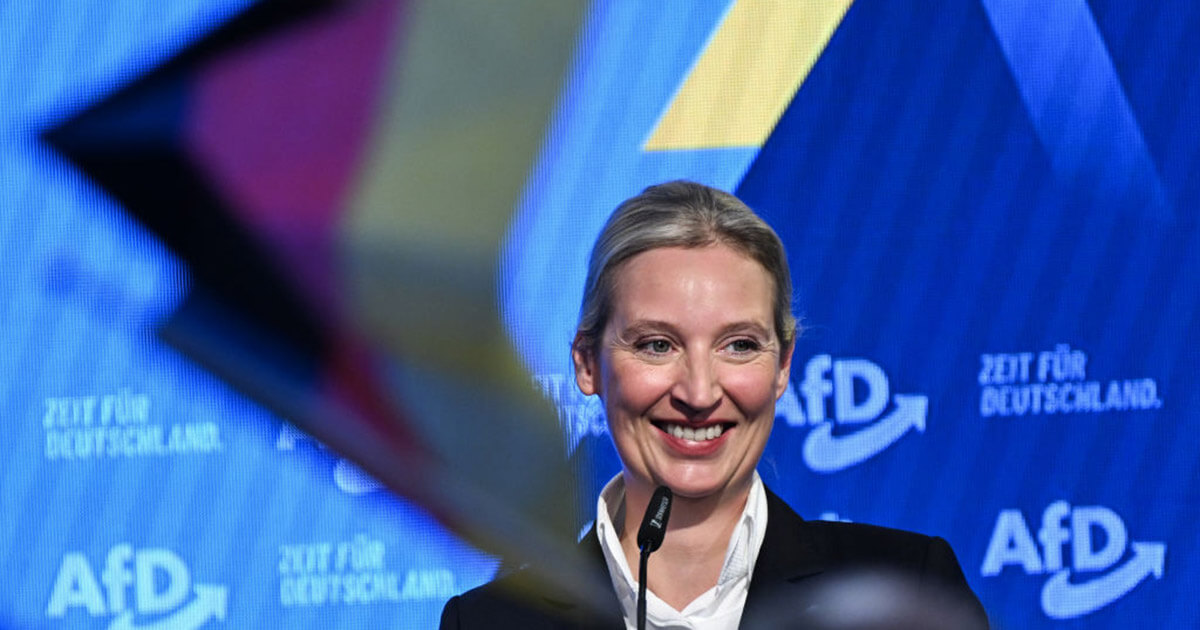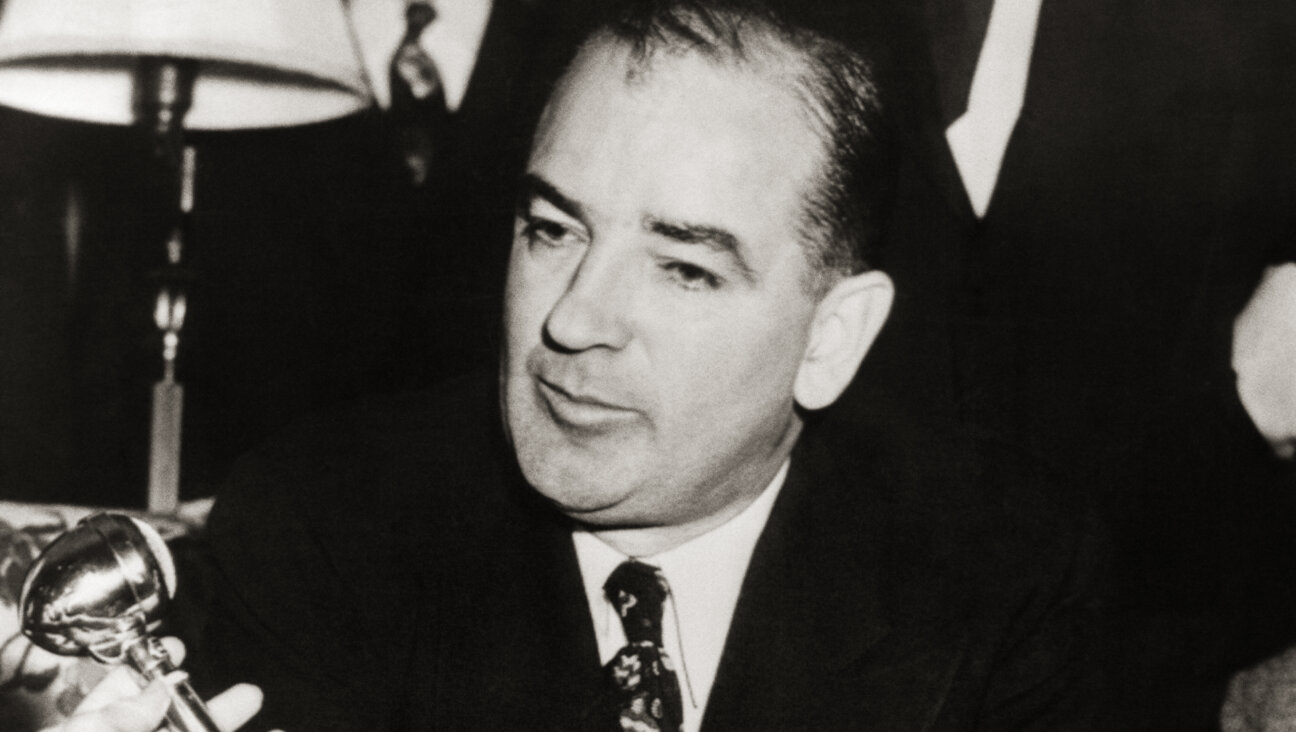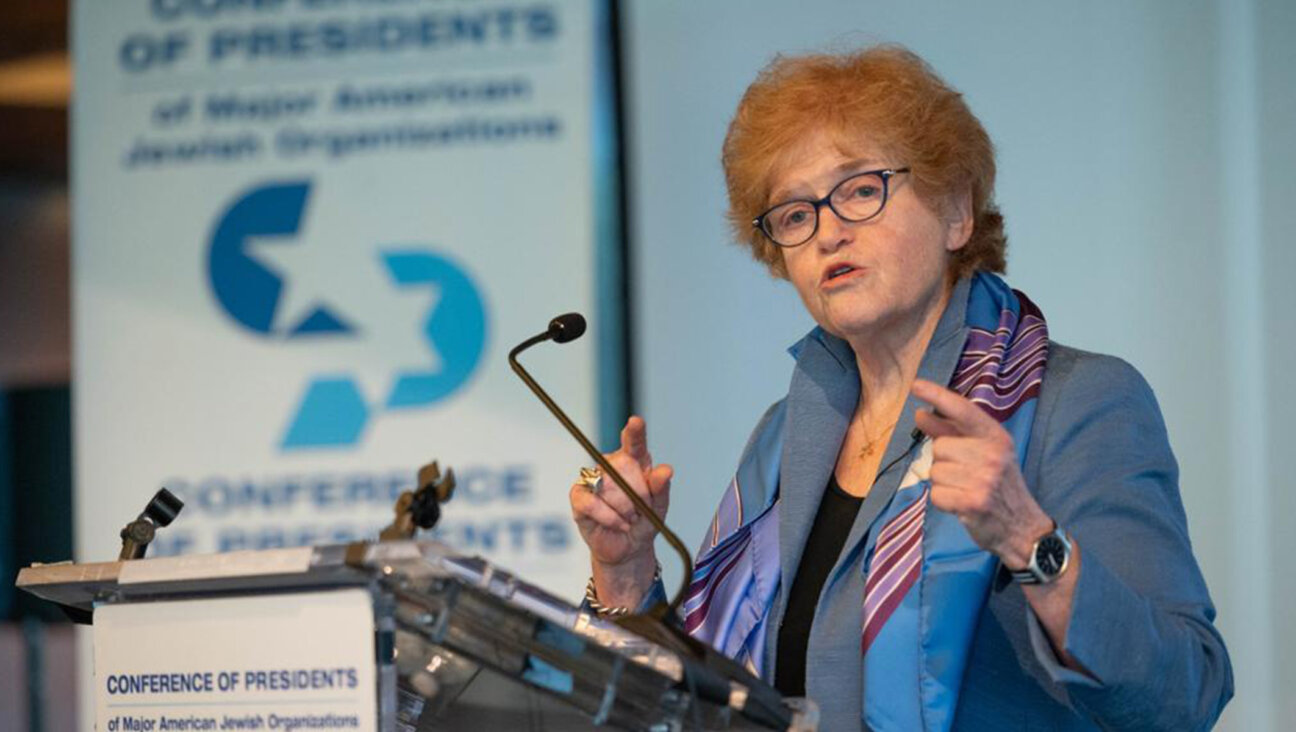Foundation for Jewish Culture Lauds ‘Brooklyn Boy’ Playwright
“Ours was a culturally rich Jewish household,” Pulitzer Prize-winning playwright Donald Margulies said at the June 6 National Foundation for Jewish Culture Awards in the Arts dinner, held at the Roosevelt Hotel. Margulies was honored with the foundation’s Literary Arts Award. “By that, I mean we didn’t go to synagogue, we went to Broadway.” But hold that thought. Margulies, whose award-winning works include “Brooklyn Boy” and “Sight Unseen,” will take his bows later in this column. Dinner chair Lynn Korda Kroll launched the evening, which was also hosted by Theodore Bikel.
Via video, Michael Douglas congratulated Cultural Entrepreneur Award recipient George Blumenthal, president of Madison Medical Data Systems, Inc., and co-founder and chairman of NTL, the largest cable television company in the United Kingdom. According to the program notes, Blumenthal “understood how transformative high-speed Internet access could be in terms of ‘democratizing’ the knowledge of the world and, in particular, the heritage of the Jewish people.” He introduced Israeli photographer Ardon Bar Hama, lauding him for revolutionizing “the world of archiving rare documents through digital photography.” Examples of Hama’s technical legerdemain were featured in a film showing infrared access to a previously unreadable biblical text; the right-to-left, left-to right virtual unscrolling of a rare Torah, and a fragment of Maimonides’s signature.
“From one Jewish boy to another…. I didn’t know I was Jewish until I began working in Donald’s plays,” said “Brooklyn Boy” star Adam Arkin, who presented Margulies’s award. Musing about his roots, Margulies recalled: “My parents… weren’t religious people. Nor were they intellectuals or Zionists or socialists. The one thing they were truly fervent about — besides their sons — was show business. Old movies were our literature; Broadway cast albums, our classical music. Our family’s Jewish identity proved to be more firmly rooted in the Borscht Belt than in the West Bank. Jewishness, I learned, was a sensibility, a worldview, shaped by a rich and tumultuous history.”
Paris-born author, filmmaker and photographer Frédéric Brenner — the evening’s Visual Arts honoree — has for the past 25 years traveled the world, documenting the lives of Jews on five continents. Brenner, whose most recent photographic opus is “Diaspora: Homelands in Exile” (HarperCollins, 2003), stated, “While words like ‘tolerance, pluralism and diversity’ have become buzz- words for our time… the fact is they disguise the more difficult challenge, the necessity of grappling with the ‘otherness.’” My tablemates were Hetty Berg, affairs manager of the Jewish Historical Museum in Amsterdam, Netherlands, and Joan Rosenbaum, director of the Jewish Museum of New York.
* * *|
Cynthia Ozick was on tour for her most recent novel, “Heir to the Glimmering World,” so she could not accept her award at the National Women’s Division of the American Committee for Shaare Zedek Medical Center’s June 6 luncheon at Christie’s. Ron Rosenbaum, editor of “Those Who Forget the Past: The Question of Anti-Semitism” and author of “Explaining Hitler: The Search for the Origins of His Evil,” was her stand-in. “No one can touch her as a writer of fiction,” Rosenbaum said. “America now has two [Jewish] Nobel laureates for literature: Saul Bellow and I.B. Singer. I would like to make a case for a third. Ozick did what Singer and Saul did not do. She did not stay silent when her people were threatened. She saw the emergence of the demonization of Israel: anti-Zionism as the fashionable new cloak for antisemitism.”
Lillian Vernon, founder of Lillian Vernon Corporation (a leading national catalog and online retailer), was presented with the Woman of Achievement Award. The luncheon was co-chaired by Ingeborg Rennert. An attendee was Erica Jesselson, who established the Jesselson Heart Center — a 70,000 square foot facility that encompasses the hospital’s entire 10th floor.
Shaare Zedek, a 500-bed nonprofit institution on a 14-acre site in Jerusalem, treats patients regardless of their religious affiliation or cultural background. Its annual statistics are impressive: 40,000 admissions, 125,000 outpatients and 60,000 emergency visits; more than 10,000 women give birth in its Woman and Infant Center each year. Since 2000, its emergency department has treated a large share of those injured in the major terror attacks that have taken place in Jerusalem. It was noted that the proceeds of the event would benefit The Naava Applebaum Circle of Life Endowment. But who was Naava Applebaum?
On September 9, 2003, the night before Naava Applebaum’s wedding, she and her father, Dr. David Applebaum, head of Shaare Zedek’s Department of Emergency Medicine, were at Jerusalem’s Hillel Cafe. A homicide bomber struck the café, killing Naava, her father and five others, and injuring 57 people. Twenty-year-old Naava, a gifted student, was preparing for a career in medical research.
* * *|
The June 6 State of Israel Bonds’s Holocaust Remembrance Dinner, held at the Hilton New York, honored Steve Goldberg, a political consultant whom the evening’s program credited with playing “a key role in the election of president Ronald Reagan, and senators Charles Schumer of New York and John McCain of Arizona.” Goldberg’s father fought with a Jewish unit in the Polish army and with British forces at El Alamein, North Africa. Later he aided the Haganah in Israel’s struggle for statehood. The keynote speaker, Malcolm Hoenlein, executive vice chairman of the Conference of Presidents of Major American Jewish Organizations, gave me a brief abstract of his address: “This 60th year of remembrance is not about the past but about the future. We see the world choosing to ignore [much], just as the world ignored Hitler as long as he was targeting Jews, so the world ignored terrorism as long as the terrorists were targeting Israelis.”
A message from our Publisher & CEO Rachel Fishman Feddersen

I hope you appreciated this article. Before you go, I’d like to ask you to please support the Forward’s award-winning, nonprofit journalism so that we can be prepared for whatever news 2025 brings.
At a time when other newsrooms are closing or cutting back, the Forward has removed its paywall and invested additional resources to report on the ground from Israel and around the U.S. on the impact of the war, rising antisemitism and polarized discourse.
Readers like you make it all possible. Support our work by becoming a Forward Member and connect with our journalism and your community.
— Rachel Fishman Feddersen, Publisher and CEO




























